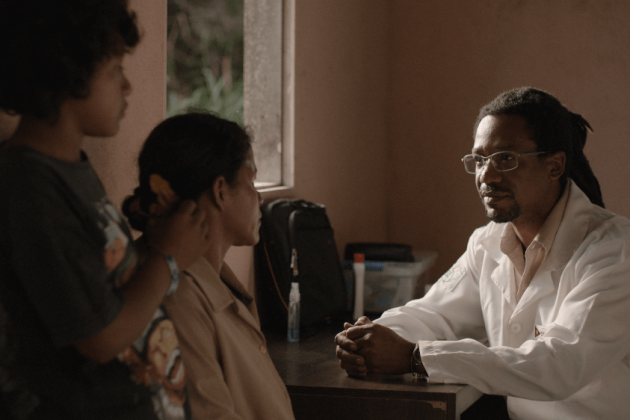Brazil’s Bernard Lessa Talks Agency, Kindness and a Character Unable to Escape Politics in ‘The Cuban Doctor’

There is a moment in Bernard Lessa’s “The Cuban Doctor” where Akin, the doctor, convinces a wary indigenous mother that surgery is needed to restore sight in her daughter’s left eye. He shows kindness, respect and patience, waiting days before she returns to give the go ahead. His approach is in stark contrast to a political climate swelling around him in Bolsonaro’s Brazil in 2018.
“The research we conducted while developing the script revealed that the Cuban way of practicing medicine is much more human and less bureaucratic than what we were used to in Brazil,” Lessa told Variety, adding: “Bolsonaro became the spokesperson for the angry Brazilian medical class, which, despite not being willing to work in the places where the Cubans came to work, felt entitled to claim that market share….For us, opposing Bolsonaro’s arrival to Akin’s interrupted mission is a way of demonstrating what was truly at stake in that moment.”
More from Variety
Sex Work, Passion Mingle in Provocative Feature 'Glória,' From 'Fala Conmigo' Director Filipe Sholl
Ventana Sur's 2023 Punto Género Lineup: Bittersweet Homecomings Mingle With Unearthed Histories
Outside of Akin’s medical vocation is his growing bond to Ana, a local teacher, and her friend Sergio. Lead actor Reynier Morales gives a humane and passionate depth to Akin and is matched by the chemistry Ana Flávia Cavalcanti and Guga Patriota bring to the triangle. “Reynier is a very talented Cuban actor who left the island for the first time to film with us while Ana is a great Brazilian actress with a growing career, who fortunately fell in love with the script and joined us,” said Lessa. “And Guga, like Sérgio, is a very enlightened human being who charmed everyone on the team since the first audition,” he added.
The director used Forro, a close and sensual style of Brazilian dance synonymous with its North-Eastern region “to develop bodily intimacy between them.”
Don’t mistake Akin’s kindness for weakness, or delicacy for slightness: He is fighting for his sense of place in the world. “The personal journey of Akin seems to me inseparable from the political aspects related to it, and perhaps there lies the balance of the film, which explores the political landscape of a moment of Brazil and its direct impact on this man’s life. While in the other characters these aspects have a more indirect influence, in his case, there is no way of escaping politics.” Lessa said.
A snake stalking scene and an ever-present buildup of sand in their homes brings a foreboding motif. “A desert is a place where no action is possible and that is the future being presented for our main character and for us as a society. A man deprived of following his vocation is a man with no possibility of effective action in the world; he is a man in a desert. The snake and the sand are both signs of this impending desert.” Lessa explained.
Regional culture that resonates elsewhere requires support, and he hopes the film’s presence as part of Primer Corte Ventana Sur can “…establish partnerships and finalize our film in the best possible way. Additionally, a film is made to be seen, so certainly our biggest hope is to find sales agents and programmers who share our desire to bring the film to as many people and places as we can,” he stressed.
With the election of Luna, and Bolsonaro barred from office until 2030 for abuses of power, the Brazil of 2023 has a different feel. For the filmmaker, maintaining one’s agency, whatever the political climate, is paramount, “The film, although set in 2018, is very contemporary, I believe, as it aims to the past but points to the future. Threats to human rights and to the existence of the entire planet are increasing as people question the democratic system and elect governments that openly flirt with authoritarianism. The 21st century is, so far, the promise of the desert. How can we reclaim our place of action in a world rapidly turning into a desert?”
Best of Variety
Sign up for Variety’s Newsletter. For the latest news, follow us on Facebook, Twitter, and Instagram.

